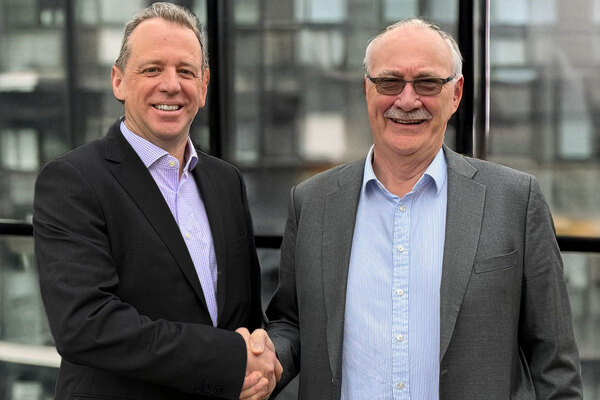Putting customers first: what housing providers can learn from other consumer-focused industries
Raven Housing Trust has taken proactive steps to move away from traditional customer engagement, writes Natalie Flageul, executive director of customer experience at the association
Raven has always prided itself on putting customers at the heart of what we do but, as our sector faces increasing regulatory scrutiny, we are embracing the opportunity to explore how we can do things differently – and better.
Key to our approach has been early engagement with customers to develop our new three-year strategy, Delivering What Matters. Our work has centred on the recognition that, to put customers first, we need to understand what is important to them.
We must appreciate what it’s like to be in their shoes, what their story is and what their daily life is like. This has meant asking the right questions to get the customers’ ‘outside in’ point of view, rather than organisations’ traditional ‘inside out’ view of their business.
We asked every customer for their opinion about our services and their experience of Raven. This involved an email survey that resulted in more than 400 responses, chatting to residents at community events, getting feedback from our customer voice panel and talking to frontline colleagues such as housing wardens and contact centre staff.
We learned that customers just want us to do the basics well and consistently, without making them work hard.
We have used this feedback to shape how our organisation is designed, to ensure we target resources and investment on what matters most to our customers.
For example, we realise our role within neighbourhoods needs to be more visible and active. Although we have limited control over issues such as anti-social behaviour or littering, we can influence and facilitate solutions through our partners.
“We learned that customers just want us to do the basics well and consistently, without making them work hard”
We recognise too that, although digital communication is useful for straightforward interactions, we need personal human connection for more complex matters.
Customers’ views are also informing our design of policies, from those around anti-social behaviour to damp and mould, access issues to managing rent increases. This policy co-creation is a marked change from our previous approach, which would involve us drawing up policies before asking for customer feedback on them.
Sentiment analysis tools have been introduced to assess how customers feel about our services and really shine a light on their experiences. This technology, which is now being rolled out to our customer contact centre, enables us to analyse large volumes of data from a range of sources to spot key themes and pinpoint where we need to improve.
Our customer voice panel, which represents residents’ views to our board, is helping us monitor performance against our strategic aims. We will share how we are doing through our website, social media and customer newsletter, to keep customers informed and involved.
Many other sectors are facing similar challenges to meet increasing demand and be more responsive to customers – and, at Raven, we have taken inspiration from sector leaders’ approach to solving such problems.
To be effective in how we listen and learn from customers, we have drawn out some key observations, which we have adopted in our customer engagement model.
- Only monitor what matters, so you are targeting your efforts on what is important to your customers.
- Align customer perception (revealed through satisfaction surveys) with business performance, so you can take a holistic view of progress.
- Only ask customers what you don’t know yourself. Don’t waste their time repeatedly asking questions about things you already know.
- Focus your efforts on actual performance, rather than averages. This is about following and learning from individuals’ real end-to-end experiences, not just point-in-time transactional metrics.
- Make a real impact when you share customers’ experiences with stakeholders, particularly your colleagues, leaders and the board. Use powerful ‘warts and all’ storytelling, with first-person accounts and videos, to bring people’s journeys to life.
Achieving a truly customer-centric organisation, whatever the sector, involves recognising that it is not a box-ticking exercise but an all-pervading way of being. It is everyone’s role to make it a reality, and that depends on your business culture. Mindful of this, we launched our ‘One Raven’ culture framework to colleagues this year. It focuses on three key principles – putting customers first, being curious and making it happen – and is supported by baseline colleague behaviours.
All our managers are completing a training programme to clarify this culture change and embed it across the business. We are also holding a day-long, all-colleague event to explain our strategic plan and everyone’s role within it.
Engaging with customers – and maintaining our focus on what is most important to them – is at the heart of this transformation, but engaging with our colleagues is vital to bring them on board and ensure we deliver on our promises.
Natalie Flageul, executive director of customer experience, Raven Housing Trust
Sign up for our tenancy management newsletter
Already have an account? Click here to manage your newsletters













